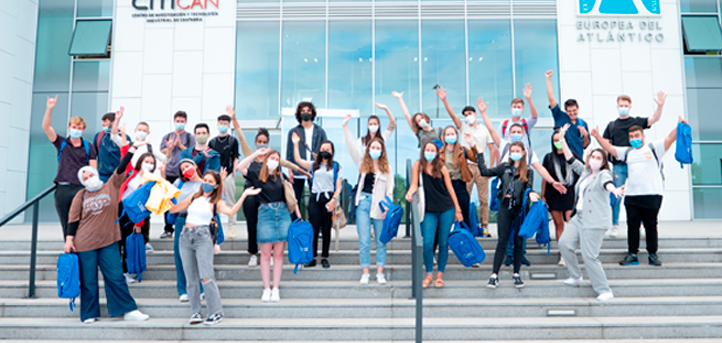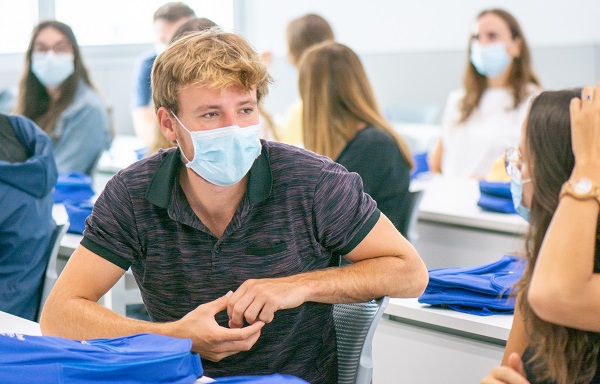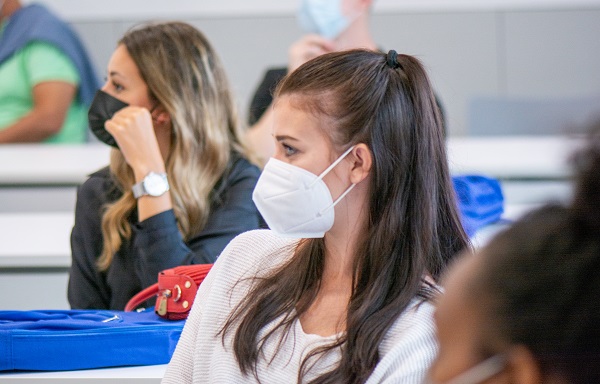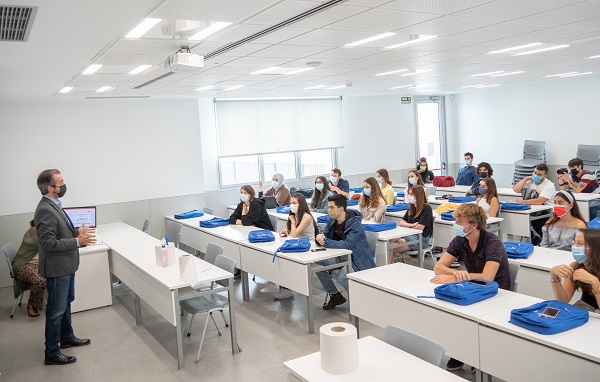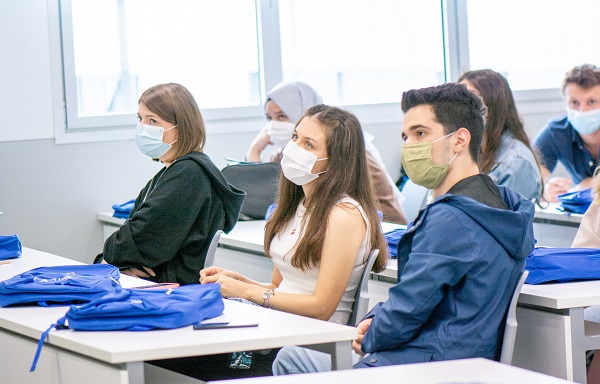The director of the International Relations Office (ORI) of the European University of the Atlantic, Juan Luis Vidal, began the welcoming ceremony for the almost forty foreign students who will participate in the Erasmus Plus mobility program which enables them to partly study in universities of the European Union.
Vidal congratulated these students for their decision to join the program “in a delicate time due to Covid” and hoped that the situation “will eventually normalize“.
Even during the 2020-2021 academic year, the Erasmus program was not interrupted, although the number of students from other countries was significantly less. In any case, the program is not exclusively for European students, but has been extended to some Latin American countries thanks to agreements established with some Latin American universities.
During his speech, Juan Luis Vidal explained the “vital experience” offered by this program, through which “many students see themselves on their own for the first time“. He also reminded them that “from the mere 300 students who participated in the first edition of these programs throughout Europe twenty years ago, the number has grown to almost half a million in the last academic year“. In conclusion, Vidal offered some interesting facts about the study periods abroad, “such as the fact that they create employment opportunities for a third of participants, provide essential skills and competencies to 75% of those who take them, and reinforce the European identity of 90% of the students and professors who take part in them“.
Dr. Araceli Alonso then took the floor, highlighting the “experience that comes from sharing classrooms and space with classmates from different backgrounds that not only carries academic repercussions, but social and cultural implications as well.” Dr. Alonso drew their attention to the fact that “this was not merely a study program, by which I also encourage you to get involved in the activities and keep a positive attitude by participating in classes.”
The event was closed by Laura Martín, member of the International Relations Office of the University, who offered to help the students complete their documentation, visit places of interest in Cantabria, etc.
The students’ main countries of origin at the UNEATLANTICO campus are France, the Netherlands, Germany, Romania, Portugal, Belgium, Mexico, Poland, the Czech Republic, Turkey, and Moldova, although some more may join in the coming days.


